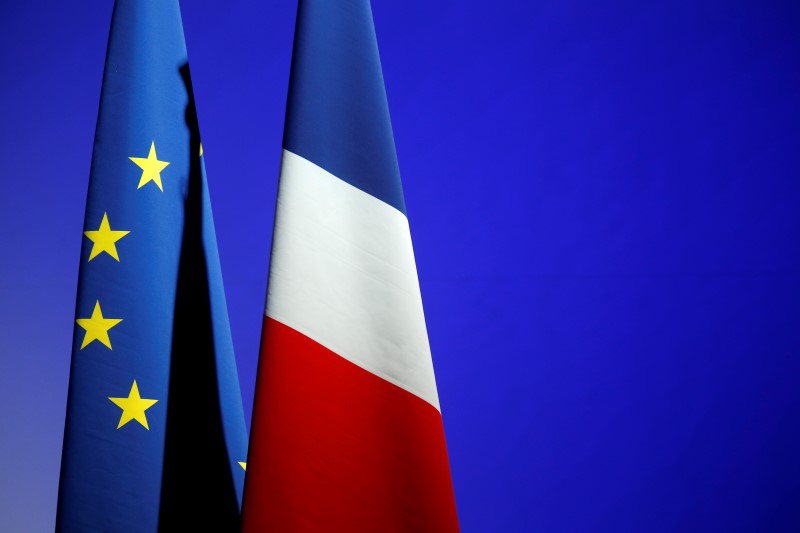Trump meets Zelenskiy, says Putin wants war to end, mulls trilateral talks
(Recast, new throughout)
By John Irish and Tangi Salaün
PARIS, April 22 (Reuters) - France defended the Chadian
army's takeover of power on Thursday after the battlefield death
of President Idriss Deby presented Paris with an uncomfortable
choice - back an unconstitutional military leader or risk
undermining its fight against Islamists.
While the opaque political and business ties that once bound
France to its ex-colonies in Africa have frayed over the last
decade, interests remain closely intertwined and under Deby's
rule Chad was a key ally in combatting Islamists in the Sahel.
Foreign Minister Jean-Yves Le Drian justified the
installation of a military council headed by Deby's son on the
grounds that stability and security were paramount at this time.
"There are exceptional circumstances," Le Drian told France
2 television.
Deby's son Mahamat took control of the country and its armed
forces on Wednesday, dissolving the parliament and suspending
the constitution. According to the constitution, National
Assembly Speaker Haroun Kabadi should have taken over.
Opponents called the move a coup.
"Logically, it should be Mr Kabadi...but he refused because
of the exceptional security reasons that were needed to ensure
the stability of this country," Le Drian said.
President Emmanuel Macron has repeatedly said he wants to
break from a past in which France appeared to call the shots in
its former colonies, and he has urged the older generation to
hand over to Africa's younger politicians.
But after a coup in Mali that saw Paris forced to accept a
fait accompli and incumbent presidents in Ivory Coast and Guinea
returning to power, that policy has been increasingly tested.
Nowhere more so than in the Sahel, where France's 5,100
troops, which includes a base in the Chadian capital N'Djamena,
remain entrenched fighting groups backed by al Qaeda and Islamic
State with few prospects of being able to pull out.
Idriss Deby was killed on Monday on the frontlines of a
battle against the Libyan-based Front for Change and Concord in
Chad (FACT) rebels who invaded from the north.
An authoritarian ruler for more than 30 years, he was
nonetheless a lynchpin in France's security strategy in Africa.
Two years ago Paris came to his help dispatching warplanes to
stop a Sudan-backed rebel advance.
KEEPING CONTINUITY
"France's interpretation of the national interest dictates
that they have to support a transition that keeps as much
continuity as possible," said Nathaniel Powell, Research
Associate at Lancaster University and author of "France's Wars
in Chad".
"Mahamat's military council is probably the best case
scenario for that kind situation. The French are just hoping
that military and civil discontent don't undermine the
transition too much."
Key in the immediate term for Paris is ensuring that the
deployment of a battalion of 1,200 men to the tri-border theatre
between Burkina Faso, Mali and Niger earlier this year remains
in place. It is seen as vital to enable French and other forces
to re-orient their military mission to central Mali and to
target Islamist leaders linked to al Qaeda.
Le Drian, who will travel with Macron to Chad on Friday for
Deby's funeral and to hold talks with the military leaders, said
the council's priority was to ensure stability and then focus on
a peaceful and transparent transition to democracy.
The FACT rebels, a group formed by dissident army officers,
rejected the military's plan and have vowed to resume
hostilities.
Military and diplomatic sources said Paris would watch the
offensive closely and assess if the group was ready to talk.
Mahamat said the army wanted to return power to a civilian
government and hold free and democratic elections in 18 months.
Le Drian, made no mention of the 18-month time frame.
"Eighteen months is too long," said a French diplomatic
source. "Macron will pass the message to the African presidents
in the region so that they in turn put pressure on Mahamat to
not be an idiot."
